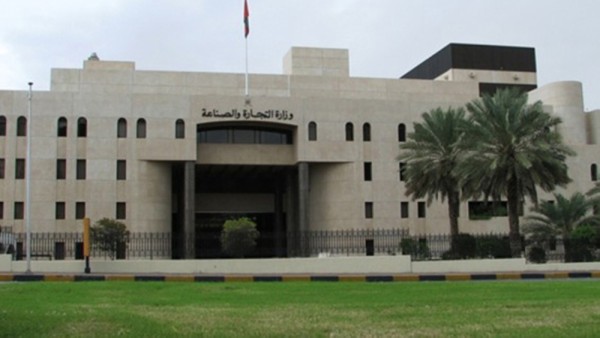Merge 104.8 | 31 May 2020
Oman’s Ministry of Commerce and Industry (MoCI) has confirmed that efforts are underway to tackle the effects of the global COVID-19 pandemic which have posed unprecedented challenges to public and private sectors, particularly the health sector.

As Oman News Agency (ONA) reports, Eng. Sami bin Salim al-Sahib, Director General of Industry at the MoCI has said that: “We continue to work in a speedy and transparent manner to respond to these new challenges through regular modernization of procedures to keep pace with efforts of other government departments.”
As per ONA, al-Sahib pointed out that the MoCI continues supporting medical industries to meet the unprecedented demand for protective supplies and other medical items, with an emphasis on items of personal protection against COVID-19 like face-masks, gloves, and sanitizers, among other medical products.
Al-Sahib added that there is a great increase in demand for personal protection products and this requires a quick response, stating that the Ministry takes note of priorities of clients and acts promptly to obtain medical supplies highly-needed in the local market. He also noted that the MoCI streamlines procedures pertaining to regulatory approvals for manufacturing new medical products. This, he explained, increases the import of basic personal protection equipment and medical goods, including a whole range of medical care supplies.
“The most important challenges at present in many medical industries firms is the availability of raw materials — which influence levels of production, as well as series of healthcare products which mostly rely on imports. The response of the industrial sector in tackling this challenge was excellent. Some industrial installations have even changed their production lines to adapt to the new situation,” said Eng. Al-Sahib.
He pointed out that cooperation and coordination between the concerned departments contributed positively to meeting the requirements of industrial installations.
Meanwhile, Dr. Mohammed bin Hamdan al-Rubai’ee, Director General of the Directorate General of Pharmaceutical Affairs and Drug Control, said that the Ministry seeks to raise the production of medical drugs to 20 per cent by 2025 to help keep pace with the rising demand for such industries, and augment rates of self-sufficiency.
Al-Rubai’ee added that the current global COVID-19 health crisis has highlighted the significance of local industrialization to enhance drug security, particularly in cases where it becomes difficult to import products to meet a country’s needs.
He pointed out that medical supplies factories were in schedule to shoulder this big responsibility.
Al Rubai’ee explained that 2019 witnessed a considerable surge in demand for investment in industries of drugs and medical supplies, noting that license was given to a packaging factory and that the unit is expected to begin production shortly.
Al Rubai’ee added that five other factories are under construction, one for intravenous and dialysis solutions (the first of its kind in the Sultanate), another for the production of cancer drugs, a third factory for the production of pills, capsules, and syrups, a fourth factory for the production of raw materials used in medical drug industries, and a fifth one for the production of medical supplies like syringes.
The volume of investment involved in these products stands at OMR 25 million, al-Rubai’ee explained, adding that preliminary approvals have been granted for another set of projects, and that construction works are expected to begin this year. So far, a total of seven factories are operating and producing more than 300 types of medicines and medical supplies, either in finished or half-finished shape, or as raw materials, he said.
The volume of the medical drug market in the Sultanate stands at OMR 175 million (OMR 8.7 million-worth of medicines to the public sector, and OMR 95 million-worth for the private sector), said al-Rubai’ee, who explained that market volume of local drugs (either for domestic distribution or export) stands at more than OMR 50 million.
Al Rubai’ee pointed out that 2019 witnessed significant developments in terms of regulation of the medical supplies sector. He explained that the Enlisting Stage has been completed, and this involved commercial and manufacturing firms’ listing all the products that they market locally (a total of 100,000 items. This, he added, will be followed by a Registration Stage, which involves the registration of firms that produce medical supplies and products. In future, no medical supplies will be sanctioned for import or marketing unless registered at the Ministry of Health, said al-Rubai’ee.
Source: ONA
(Also read: Oman: New timings announced for COVID-19 testing centres in Muscat.)